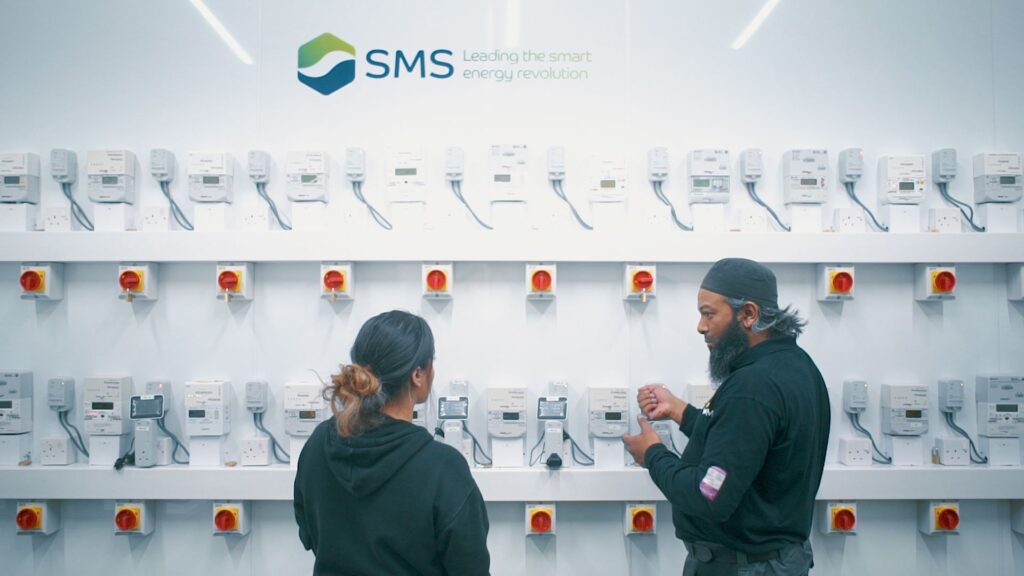SMS to develop smart electricity tariff ‘engine’ that could optimise demand flexibility potential of UK homes

SMS Ltd is to design a new smart electricity tariff ‘engine’ that will generate optimised time-of-use tariff products for UK households.
The Intelligent Smart Energy Engine (ISEE) could enable energy suppliers to maximise potential cost savings for consumers through integrating tailored tariffs with the intelligent control of home appliances.
The ISEE pilot will be led by SMS and developed alongside partners including Samsung Research UK and Shell Energy after the consortium’s proposal was awarded funding via the UK Government’s Alternative Energy Markets (AEM) innovation programme. The research project, which aims to show how optimised electricity tariffs can influence the adoption of flexible green technologies in the home, will build the ISEE based on similar principles used by tariff comparison mechanisms.
Using half hourly electricity data collected from smart meters, to be carried out by SMS’s energy data company n3rgy, the ISEE will combine household consumption information with the operational data associated with individual Energy Smart Appliances (ESA) – such as battery storage, heat pumps, electric vehicle chargers and white goods – that are already installed or plan to be installed in the home.
The ISEE – which will be tested against potential alternative energy market scenarios of a future energy system – will then create an optimised time-of-use tariff structure based on the information collected to maximise potential cost savings available to the consumer. This will be enabled by aligning the tariff offer with the intelligent control of the home’s ESAs – delivered via SMS’s innovative FlexiGrid platform – ensuring flexible home electricity demand at the most cost-effective times of day.
Once developed, the new smart tariff and flexibility design will be made available to participating energy suppliers Shell Energy and Rebel Energy to adopt and supply a group of suitable consumers. The project will run for around six months, with findings informing later decisions on how the product could be commercialised for mass market adoption. Other partners on the ISEE project are Engage Consulting, MyUtilityGenius, Hugo Technologies, and Evergreen Energy.
SMS will additionally collaborate with Evergreen Energy, Chameleon Technology, and Energy Systems Catapult on a separate demand flexibility research project announced under the Government’s AEM programme. The AEM is part of the Government’s £1 billion Net Zero Innovation Portfolio which provides funding for low-carbon technologies and systems and aims to decrease the costs of decarbonisation.
During National Grid ESO’s inaugural Demand Flexibility Service trial last winter, SMS was the largest independent aggregator to participate as an approved provider, bringing nearly 50,000 customers into the national energy saving scheme which incentives households to shift their electricity usage away from peak times.
Tom Woolley, Smart Product and Strategy Director at SMS Ltd, said:
“Combining the creation of optimised electricity tariffs and domestic smart energy appliances with the intelligent deployment of demand-side flexibility offers incredibly exciting potential to bring benefits to consumers, suppliers, and grid operators alike. At SMS, we are committed to advancing and implementing low-carbon technologies and solutions, and this project will allow us to show how the smart meter system can be used as a fundamental platform to further develop and innovate in this field.
“The ISEE pilot marks a milestone for the energy sector as it aims to revolutionise the way tariffs are designed to empower and engage consumers and will identify and support future models of our energy system. Through collaboration and innovation, we believe this project could unlock significant opportunities for the adoption of domestic renewable technologies and other energy smart appliances.”
Bringing Demand Flexibility to UK homes
We deliver an end-to-end smart data and aggregation solution that enables suppliers and energy technology businesses to participate in National Grid ESO’s Demand Flexibility Service.

